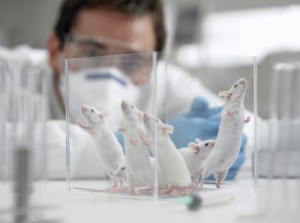Why Are Animals Used In Scientific Research?

When one thinks of animal use in the sciences, the first animal that comes to mind is often a rat. Although it is true that rats are used, there are an array of different animals used in scientific research. Why is this? Animal use for research dates back to as far as 500 B.C. There is evidence of ancient Greeks dissecting live animals to learn not only the anatomy but the psychology of the animal. In this course we specifically learned about Bruce the Kea and his journey of using innovative tool use for preening. Humans share about 90% of their genes with other mammals making them the perfect candidate for research subjects. But before a researcher can use an animal they must acquire three separate licenses; a personal license, project license, and an establishment license.
Animals have been used for groundbreaking research in the medical field such as Ebola, Leukemia, Herceptin, and countless other diseases. With out these laboratory animals we wouldn't have many of the vaccines and treatments we have today that save countless lives. As heroic as these animals are, they often live a short and sad life. Majority of the time they are specially bred to be research animals to ensure they are free of any genetic abnormalities. At the end of many experiments, the animal is humanly killed so that they researcher can undergo a full examination of their tissues. Other instances they are used for another experiment but are rarely re-homed.
Understanding Animal Research. (n.d.-b). Why are animals used in scientific research?. Why Are Animals Used For Scientific Research? https://www.understandinganimalresearch.org.uk/application/files/5916/5226/6815/Why_are_animals_used_in_scientific_research.pdf
the critical role animals play in medical research, emphasizing that without their contributions, we wouldn't have many life-saving vaccines and treatments and I think we forget that at times.
ReplyDelete